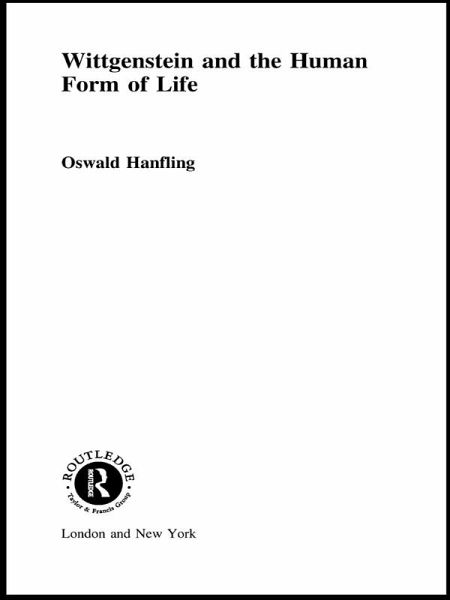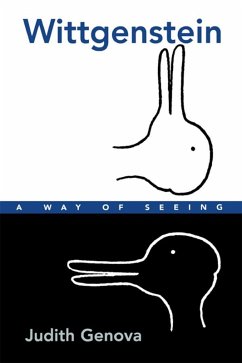
Wittgenstein and the Human Form of Life (eBook, PDF)
Versandkostenfrei!
Sofort per Download lieferbar
56,95 €
inkl. MwSt.
Weitere Ausgaben:

PAYBACK Punkte
28 °P sammeln!
Wittgenstein's later writings generate a great deal of controversy and debate, as do the implications of his ideas for such topics as consciousness, knowledge, language and the arts. Oswald Hanfling addresses a widespeard tendency to ascribe to Wittgenstein views that go beyond those he actually held. Separate chapters deal with important topics such as the private language argument, rule-following, the problem of other minds, and the ascription of scepticism to Wittgenstein. Describing Wittgenstein as a 'humanist' thinker, he contrasts his views on language, art humanity and philosophy itself...
Wittgenstein's later writings generate a great deal of controversy and debate, as do the implications of his ideas for such topics as consciousness, knowledge, language and the arts. Oswald Hanfling addresses a widespeard tendency to ascribe to Wittgenstein views that go beyond those he actually held. Separate chapters deal with important topics such as the private language argument, rule-following, the problem of other minds, and the ascription of scepticism to Wittgenstein. Describing Wittgenstein as a 'humanist' thinker, he contrasts his views on language, art humanity and philosophy itself with those of scientifically minded philosophers. He argues that 'the human form of life' calls for a kind of understanding that cfannot be achieved by the methods of emirical science; that consiousness, for example, cannot properly be regarded as a property of the bran; and that the resulting 'problem of consoiusness is an illusion. Wittgenstein and the Human Form of Life is essential reading for anyone interested in Wittgenstein's approach to what it means to be human. It will be invaluable to all Wittgenstein scholars, and all who are interested in the philosophy of mind, language and aesthetics.
Dieser Download kann aus rechtlichen Gründen nur mit Rechnungsadresse in A, B, BG, CY, CZ, D, DK, EW, E, FIN, F, GR, HR, H, IRL, I, LT, L, LR, M, NL, PL, P, R, S, SLO, SK ausgeliefert werden.













